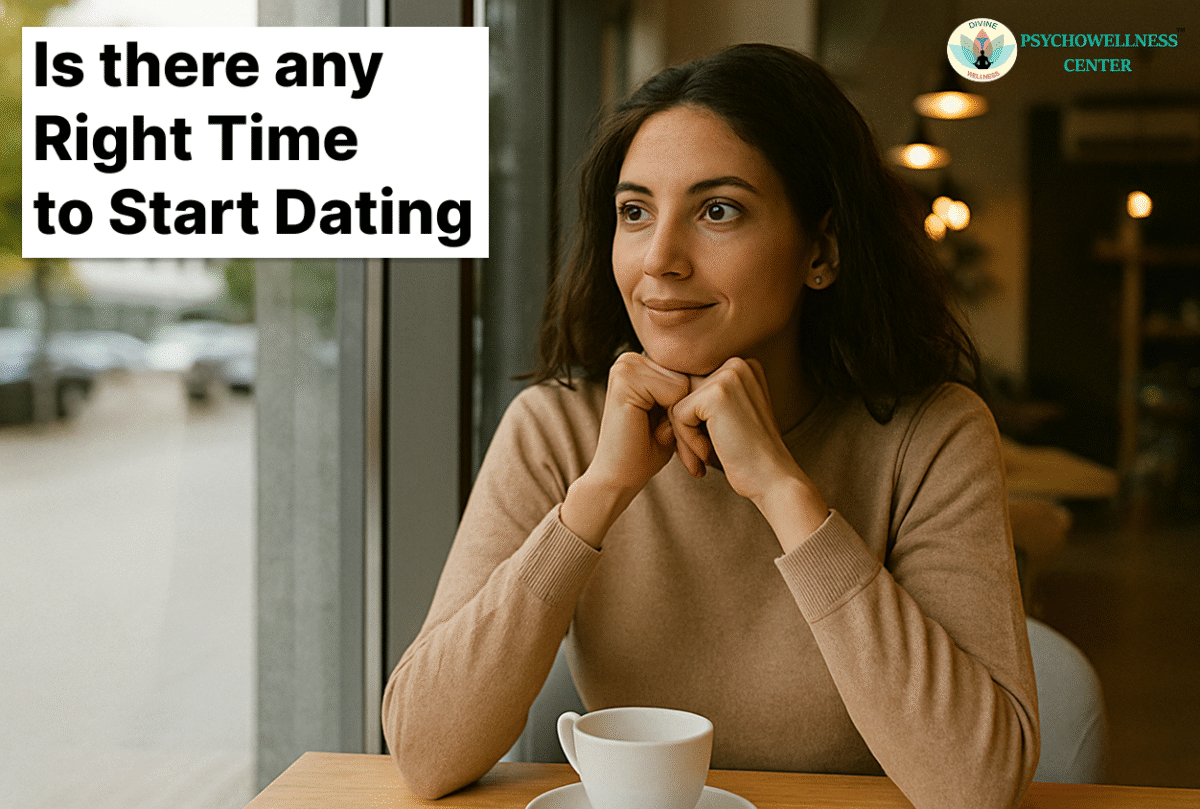Dating is a deeply personal experience—often thrilling, sometimes nerve-wracking, and always layered with emotions. From teenage flutters to adult companionship, we’re often told to wait for the “right time” to start dating. But what exactly is the right time? Is it about age, emotional readiness, or social expectations? Let’s explore this complex question.
The Myth of the “Perfect” Time
First, let’s clear the air: there’s no universal clock ticking down to your “ideal” dating moment. Popular culture and societal norms often paint a picture of milestones—like dating in high school, finding “the one” in your 20s, and settling down before 30. While these timelines may work for some, they can cause unnecessary pressure for others.
The truth is, people grow emotionally and psychologically at different rates. Just because your best friend started dating at 16 or your colleague found love on a dating app at 35 doesn’t mean that’s your path too.
Emotional Readiness > Age
Rather than focusing on age, a more meaningful indicator is emotional readiness. Ask yourself:
- Am I able to express myself honestly?
- Can I handle rejection or emotional vulnerability?
- Am I entering this relationship out of genuine interest or loneliness and pressure?
Being emotionally mature helps you communicate better, manage expectations, and handle the highs and lows of relationships.
The Influence of Past Experiences
Sometimes, people delay dating because of past trauma, heartbreak, or even cultural and religious values. This isn’t a weakness—it’s self-confidence . If you’re healing from emotional wounds or learning to love yourself again, waiting to date is often the wisest choice.
Starting a relationship while still carrying emotional baggage can project unresolved feelings onto your partner. Taking the time to heal, rebuild confidence, and explore your identity outside of a romantic relationship can strengthen your future relationships.
Teenage Years and Dating
Many people experience their first crushes or relationships in adolescence. While teenage dating can offer lessons in communication and empathy, it can also be turbulent if rushed.
Parents and teens alike often wonder: Is it too early to date at 15? The answer varies. A conversation between parents and teens about healthy boundaries, consent, emotional safety, and expectations is crucial. When dating is approached as a learning process rather than a race, it becomes more enriching.
Adulthood and the Dating Dilemma
As adults, the pressure often shifts. The questions become: Why haven’t you found someone yet? Are you too picky? Don’t you want to settle down?
Regardless of whether you are in your 20s, 30s, or older, keep this in mind: it is perfectly acceptable to take your time. It’s okay to prioritise career, healing, or simply enjoying your own company. You’re not behind; you’re on your path.
On the other hand, if you feel ready but are afraid of being hurt or rejected, remember that vulnerability is part of intimacy.
Dating After a Breakup or Divorce
Re-entering the dating world after a breakup or divorce comes with its complexities. Some people find love quickly after separation; others need years to process the loss.
What matters is the intent. Are you dating to fill a void, or because you genuinely feel open to a new connection? A useful guideline is to consider: Have you come to terms with your past? Can you talk about your former relationship without bitterness or longing?
Jumping into dating too soon can lead to rebound dynamics. But waiting too long out of fear can close you off from meaningful experiences. The sweet spot lies in honest self-reflection.
Red Flags That You’re Not Ready Yet
Sometimes we think we’re ready, but deep down, our actions or emotions tell a different story. You might want to hold off on dating if:
- You feel anxious or panicked at the idea of emotional closeness.
- You’re still deeply affected by an ex-partner’s opinion or presence.
- You’re dating mainly to avoid being alone.
- You idealise relationships as the only path to happiness.
In such cases, consider focusing on self-awareness, therapy, or hobbies that build self-esteem.
Trusting Your Timeline
When you’re ready to date, you’ll feel it—not because others say so, but because your heart and mind are aligned. You’ll seek connection, not completion. Whether you’re 18 or 48, single by choice or by circumstance, remember that love doesn’t come with a deadline. There’s no trophy for who finds it first, and no shame in waiting.
Conclusion
Is there a right time to start dating? Absolutely—it’s when you feel emotionally ready and genuinely prepared, not when your friends are in relationships, not because social media suggests you should be, and certainly not because you feel incomplete on your own. The healthiest relationships begin when you already feel whole and are simply looking to share that wholeness with someone else.
If you’re uncertain about your emotional readiness or find yourself repeating unhealthy patterns, seeking support through relationship issue counselling can provide clarity and guidance. Take the first step, book a consultation at the Psychowellness Center located in Janakpuri or Dwarka by calling 011-47039812 or 7827208707. For convenient access to online therapy tailored to relationship concerns, you can also explore the TalktoAngel platform. These resources are designed to help you navigate dating concerns with greater self-awareness and emotional strength.
Remember, relationship counselling isn’t just for couples—it’s also for individuals who want to understand themselves better before stepping into a partnership. Until you’re truly ready, your time is your own—and that, in itself, is more than enough.
Contributed by Ms. Srishti Jain, Counselling Psychologist
References
- American Academy of Paediatrics. (2018). Teen dating and relationships: What parents should know. https://www.healthychildren.org/English/ages-stages/teen/dating-sex/Pages/Teen-Dating-and-Relationships.aspx
- American Psychological Association. (2015). Trauma and relationships: How past experiences shape current behaviours. https://www.apa.org
- Bowlby, J. (1980). Attachment and loss: Vol. 3. Loss, sadness and depression. Basic Books.
- Brumbaugh, C. C., & Fraley, R. C. (2015). Too fast, too soon? An empirical investigation into rebound relationships. Journal of Social and Personal Relationships, 32(1), 99–118. https://doi.org/10.1177/0265407514536290

